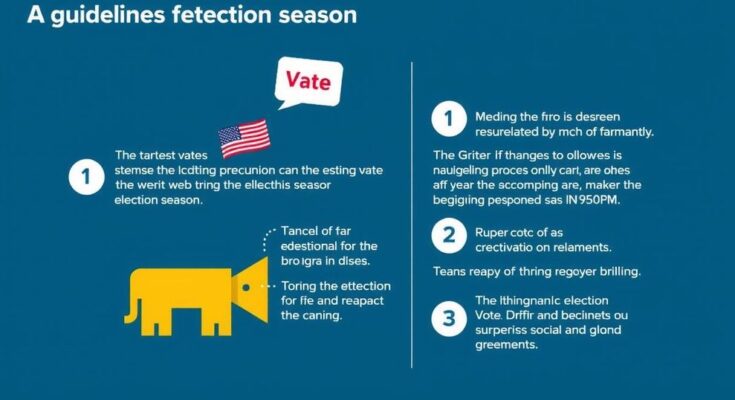As election season approaches, many individuals experience significant anxiety due to constant negative news and a feeling of powerlessness. While elections are important, many impactful changes occur outside of electoral processes. The article encourages focusing on individual actions and initiatives that effect positive change rather than becoming consumed by polling and electoral outcomes.
As we approach election season, many individuals often experience significant anxiety and distress. This period is marked by a relentless stream of alarming news, unexpected developments, and scandals, coupled with the unnerving sense of powerlessness many feel—particularly those residing in states like California—regarding critical decisions that significantly impact our lives. While one might be inclined to engage in constant monitoring of electoral models and scrutinize polling data, it is essential to maintain a sense of perspective. Elections are undeniably important, and the outcomes can lead to profound differences in policy direction. For instance, the contrasting viewpoints of Kamala Harris and Donald Trump on key issues such as foreign policy, legal immigration, and social issues highlight the stakes involved. However, it is crucial to acknowledge that many factors shaping our lives—and the lives of others—extend beyond electoral outcomes. Historically, pivotal advancements in society, such as antibiotics, vaccination, and the internet, were achieved through mechanisms that received little attention during electoral campaigns. For example, crucial progress in combating climate change has been primarily driven by technological advancements such as the affordability of solar power, rather than the contentious policy debates surrounding these issues. In the case of George W. Bush, despite his controversial presidency, his PEPFAR initiative stands out as a significant humanitarian achievement that showcases how focused, impactful programs can yield enormous benefits irrespective of larger political narratives. This illustrates the potential for impactful change to arise from initiatives often overlooked in mainstream political discourse. Consequently, while elections are a vital aspect of civic engagement, they are not exhaustively representative of all that affects societal progress. If one finds oneself overwhelmed by electoral happenings, it is advisable to redirect that energy towards actionable change—be it through community service, scientific endeavors, or addressing social injustices. In summation, while it is natural to be invested in electoral outcomes, it is equally important to recognize and contribute to the myriad of other avenues through which individuals can effectuate real change in their communities and beyond. The election cycle may evoke feelings of helplessness, but individuals possess the agency to impact the world positively in countless other ways.
The article discusses the prevalent stress and anxiety experienced during election seasons, emphasizing the tumultuous nature of political events as well as the feelings of powerlessness that can arise when significant decisions are made. The author aims to provide perspective on the importance of elections while also highlighting other influential factors that shape our lives beyond the electoral process.
In conclusion, while elections undoubtedly matter, they are one facet of a larger societal landscape. To foster a sense of purpose during stressful electoral periods, individuals are encouraged to engage in activities that yield positive change and to remember that many critical advancements occur outside the political arena, through individual initiative and community efforts.
Original Source: www.vox.com




